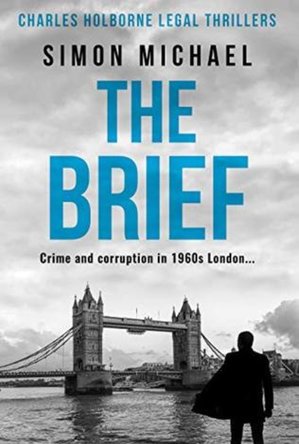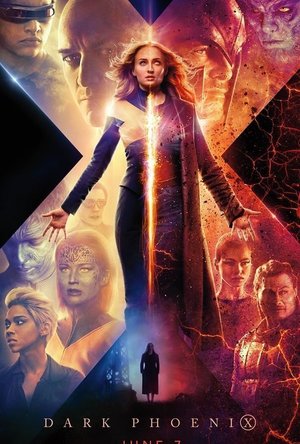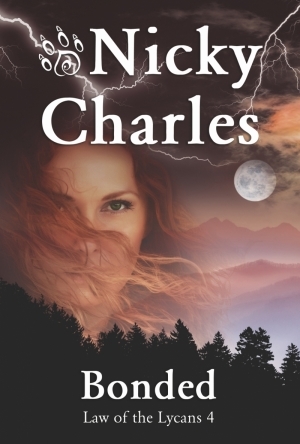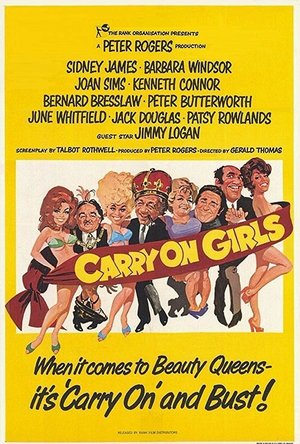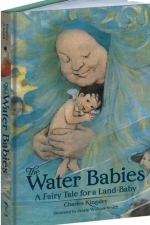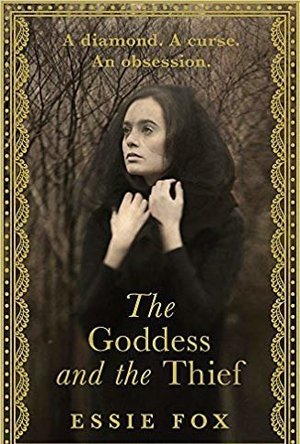Search
Search results
ClareR (6054 KP) rated The Brief (Charles Holborne #1) in Books
Jun 14, 2019
An exciting legal thriller
Sapere books just seem to keep publishing books that I really enjoy reading. This is another one. Again, a book that I wouldn’t normally read - although I don’t think I can keep saying that about thrillers, I seem to be reading a lot of them lately! This is a very good one though.
Charles Holborne wasn’t born as a Holborne, he was originally Charlie Horowitz. After a successful war for him, he left the RAF and went to Cambridge, which for a Jew from the East End at that time was both unusual and remarkable. He becomes a barrister, which is again unusual, and changes his surname due to the prejudice of those in chambers. He’s very good at his job, and specialises in criminal cases. Not everyone appreciates his success, and he soon runs in to some serious problems.
This book just seemed to speed by for me. It was interesting, fast-paced and the second half was rather exciting. We even get to meet the Krays (there’s some historical crimes and criminals to help the reader get some sort of context)!
Charlie Holborne is a really likeable character, and I’d be very interested to read more books in this series.
Thanks to Sapere Books for my copy of this book to read and honestly review.
Charles Holborne wasn’t born as a Holborne, he was originally Charlie Horowitz. After a successful war for him, he left the RAF and went to Cambridge, which for a Jew from the East End at that time was both unusual and remarkable. He becomes a barrister, which is again unusual, and changes his surname due to the prejudice of those in chambers. He’s very good at his job, and specialises in criminal cases. Not everyone appreciates his success, and he soon runs in to some serious problems.
This book just seemed to speed by for me. It was interesting, fast-paced and the second half was rather exciting. We even get to meet the Krays (there’s some historical crimes and criminals to help the reader get some sort of context)!
Charlie Holborne is a really likeable character, and I’d be very interested to read more books in this series.
Thanks to Sapere Books for my copy of this book to read and honestly review.
Very entertaining
I've grown up watching Who Wants to be a Millionaire although I have to admit the detail behind the Charles Ingram cheating scandal passed me by. I knew of it but that was it, so I found this show to be not only entertaining but informative too.
As far as tv dramas go, this is very entertaining. The 3 episodes are just enough to tell the story without being overly long and the whole scandal itself is an intriguing tale. I never knew the origins of the show or the real detail behind the scandal (like the brother being involved), so I found this to be fascinating and it was very well made. There's a great cast in this too, Matthew Macfayden is wonderful as the almost dim witted Ingram and he's ably supported by the rest of the cast. The star of the show though is definitely Michael Sheen as Chris Tarrant. He's an absolute hoot and looks like he's having so much fun. It's just a shame that he isn't in this more, although understandable considering the story isnt about him.
Overall this is a very entertaining retelling of a true story and whilst the outcome is rather frustrating (as in real life), it's a lot of fun and has a great nostalgic feel.
As far as tv dramas go, this is very entertaining. The 3 episodes are just enough to tell the story without being overly long and the whole scandal itself is an intriguing tale. I never knew the origins of the show or the real detail behind the scandal (like the brother being involved), so I found this to be fascinating and it was very well made. There's a great cast in this too, Matthew Macfayden is wonderful as the almost dim witted Ingram and he's ably supported by the rest of the cast. The star of the show though is definitely Michael Sheen as Chris Tarrant. He's an absolute hoot and looks like he's having so much fun. It's just a shame that he isn't in this more, although understandable considering the story isnt about him.
Overall this is a very entertaining retelling of a true story and whilst the outcome is rather frustrating (as in real life), it's a lot of fun and has a great nostalgic feel.
CW
Conversations with Classic Film Stars: Interviews from Hollywood's Golden Era
Book
James Bawden: Seeing the way people behave when they're around you, is it still fun being Cary...
Rikki Hammond (33 KP) rated X-Men: Dark Phoenix (2019) in Movies
Jun 9, 2019
Dull plot (3 more)
Contrived tropes
Extremely poor ending to the franchise
Villains aren't threatening in the slightest
Blame Game: The Movie
Contains spoilers, click to show
I've just come back from watching Dark Phoenix, and boy, was I let down! This certainly wasn't the way X-Men should end!
After the brilliant Days of Future Past and Apocalypse, Dark Phoenix falls very short of the mark in terms of plot, character development, and action.
The plot revolves around the X-Men going to space to rescue some astronauts, and Jean Grey getting caught in what we are led to believe is a solar flare, giving her unimaginable power. What follows is basically a gigantic blame game, where Jean blames Charles Xavier for hiding her past, Beast blaming Charles for Raven's death (due to Jean losing control, accidently killing Raven, who blames herself for it,) Magneto blaming Jean for the same thing, etc etc, all the while, Jean gets angry sometimes and destroys stuff.
Then some random aliens (the D'Bari) show up who want to use Jean for her powers, and these guys are supposed to be the villains of the film, however, they are the least threatening villains to come out in a long time, and there's no big finale to their demise at the end, they are literally disintegrated by Jean/Phoenix.
The biggest problem with Dark Phoenix is that there really isn't much in the way of story here, and it certainly doesn't add to the X-Men universe much at all. Even after Jean 'dies' no one grieves or mourns for her, we simply see Charles and Magneto playing chess, then the film ends.
The only positives I can really give are that the acting was decent enough, especially from James McAvoy, and there were a couple of good action scenes, but overall, this will end up being another highly forgettable film, and a very disappointing end to the X-Men franchise.
After the brilliant Days of Future Past and Apocalypse, Dark Phoenix falls very short of the mark in terms of plot, character development, and action.
The plot revolves around the X-Men going to space to rescue some astronauts, and Jean Grey getting caught in what we are led to believe is a solar flare, giving her unimaginable power. What follows is basically a gigantic blame game, where Jean blames Charles Xavier for hiding her past, Beast blaming Charles for Raven's death (due to Jean losing control, accidently killing Raven, who blames herself for it,) Magneto blaming Jean for the same thing, etc etc, all the while, Jean gets angry sometimes and destroys stuff.
Then some random aliens (the D'Bari) show up who want to use Jean for her powers, and these guys are supposed to be the villains of the film, however, they are the least threatening villains to come out in a long time, and there's no big finale to their demise at the end, they are literally disintegrated by Jean/Phoenix.
The biggest problem with Dark Phoenix is that there really isn't much in the way of story here, and it certainly doesn't add to the X-Men universe much at all. Even after Jean 'dies' no one grieves or mourns for her, we simply see Charles and Magneto playing chess, then the film ends.
The only positives I can really give are that the acting was decent enough, especially from James McAvoy, and there were a couple of good action scenes, but overall, this will end up being another highly forgettable film, and a very disappointing end to the X-Men franchise.
Merissa (13600 KP) rated Bonded (Law of the Lycans #1) in Books
Mar 26, 2018
Bonded (Law of the Lycans #1) by Nicky Charles
This book has been languishing on my Kindle since April 2013, but I've finally got round to reading it, and I'm currently kicking myself for waiting so long!
This is an excellent story that shows the work it takes to keep wolves from the humans' radar, but also how some wolves think they are better than others, and what they do to them. And in the middle of it all, we have Reno and Brandi - a couple that surely belong together if only they would stop being so stubborn.
Well written, with some steamy scenes that in no way take away from the story. A smooth pace and an intricate storyline. I'm about to start Betrayed now as I am hooked on this world. Absolutely recommended by me.
* Verified Purchase ~ April 2013 *
Merissa
Archaeolibrarian - I Dig Good Books!
This is an excellent story that shows the work it takes to keep wolves from the humans' radar, but also how some wolves think they are better than others, and what they do to them. And in the middle of it all, we have Reno and Brandi - a couple that surely belong together if only they would stop being so stubborn.
Well written, with some steamy scenes that in no way take away from the story. A smooth pace and an intricate storyline. I'm about to start Betrayed now as I am hooked on this world. Absolutely recommended by me.
* Verified Purchase ~ April 2013 *
Merissa
Archaeolibrarian - I Dig Good Books!
Awix (3310 KP) rated Carry On Girls (1973) in Movies
Mar 24, 2020
Couldn't watch that film about angry feminists sabotaging Miss World as the cinemas are all shut, so I settled for this as it has basically the same plot. Moneygrubbing lecher Sid organises a beauty contest in the seaside town of Fircombe (dearie, dearie me); various hijinks ensue.
I know it's not very acceptable to like the Carry On films nowadays, but some of them are still consistently and irresistibly funny. Not this one, however. Most of the A-team hasn't turned up (no Kenneth Williams, no Charles Hawtrey, no Hattie Jacques, no Jim Dale) and most of the actors who are present are unable to lift the duff script they've been given. A heroic performance from Sid James does draw some laughs, but these films shouldn't be a one-man show. The consistent chauvinism and clumsy salaciousness becomes genuinely wearing as well. Grisly stuff, and quite hard going.
I know it's not very acceptable to like the Carry On films nowadays, but some of them are still consistently and irresistibly funny. Not this one, however. Most of the A-team hasn't turned up (no Kenneth Williams, no Charles Hawtrey, no Hattie Jacques, no Jim Dale) and most of the actors who are present are unable to lift the duff script they've been given. A heroic performance from Sid James does draw some laughs, but these films shouldn't be a one-man show. The consistent chauvinism and clumsy salaciousness becomes genuinely wearing as well. Grisly stuff, and quite hard going.
TP
The Parkhurst Years: My Time Locked Up with Britain's Most Notorious Criminals
Book
'The next stage meant that there was no going back. An Irish prisoner stepped forward and slipped a...
Hazel (1853 KP) rated The Water Babies in Books
Dec 7, 2018
<i>This eBook was provided by the publisher via NetGalley in exchange for an honest review </i>
This year (2017), Calla Editions are printing a new hardback version of the original 1863 children’s classic <i>The Water Babies</i> written by the Anglican clergyman, Charles Kingsley (1819-75). Subtitled “<i>A Fairytale for a land-baby</i>” the book was intended for Kingsley’s youngest son and therefore was targeted at a juvenile demographic. However, as a result of the 1800’s vernacular and particularly deep themes, it has become more appropriate for older readers. With full-colour illustrations by Jessie Wilcox Smith (1863-1935) from the height of the golden age of illustration, this edition promises to be a collector’s item.
Charles Kingsley, the founder of England’s Christian Socialist movement, was exceedingly interested in the plight of the working class, particularly of the abuse and protection of children. This is reflected in his story about Tom, the ten-year-old London chimney sweep, who suffers ill-treatment at the hands of his employer. Tom, who has known nothing but the sooty streets of London, is embarrassed after scaring a beautiful young girl with his grimy appearance. Running away through a countryside he is unfamiliar with, Tom dives into a river to wash, however, falls asleep in the water.
On awakening, Tom discovers he has been transformed into a water baby; he can live and breathe amongst all the fishes and other mystical water creatures. Forgetting his horrible past, Tom is soon frolicking with the characters he meets, teasing and provoking unsuspecting individuals. But the fairies in charge of water babies are determined to teach him many lessons about truth, mercy, justice and courage.
<i>The Water Babies</i> is a morality fable with fairy-tale-like qualities. It educates young readers about the consequences of their actions but also enlightens them about the cruelty of some adults. Kingsley often talks to the reader (in this instance his son), drawing them into the story and making the scenarios as relatable as possible. The magical underwater setting is merely a veil to hide the lessons Kingsley is attempting to preach.
For the adult reader, Kingsley has a much more political message. Written at the time of political and scientific advancement, particularly in respect to the concept of natural selection, Kingsley attempts to ridicule the ideas of thinkers such as Charles Darwin by producing a satirical narrative. He suggests that scientists are fools who use unnecessarily long and foreign terms, evidenced by his use of the made-up subject of <i>Necrobioneopalæonthydrochthonanthropopithekology</i>. He also goes as far as to mock the majority of adults and appears to be completely anti-Irish people.
In some instances, Charles Kingsley goes too far in his satire, resulting in something that would not be accepted by publishers today. In order for Tom to be the hero of the story, adults need to be viewed as less than good – people who need to be punished for their discourteous treatment of children, which in this instance, they are, and quite graphically. But the most controversial theme explored is death. The more naïve may not cotton on to the fact that Tom falling asleep in the river equates to drowning, yet that is exactly what happened. Only through death can one become a water baby. To make matters slightly more alarming, Kingsley does not see this death as a bad thing; he describes Tom’s new life as something far better than life on earth – coming from a clergyman this is understandable – which suggests that death is better than living for an abused child.
Despite these controversies, Kingsley’s prose is humorous and entertaining - far more mind-boggling than you may initially expect. With characters named Mrs Bedonebyasyoudid and Professor Ptthmllnsprts, there is plenty to make readers laugh. Some of the hilarities may go above the heads of children since the jargon is no longer used in today’s society, however, adults will be able to appreciate the comical aspect.
Over 150 years old, <i>The Water Babies</i> has remained a classic. It reveals the political, scientific and social situations of the mid-1800s, yet it contains wisdom that is still relevant today. As Kingsley’s daughter Rose says in the introduction, “What a fine thing it is to love truth, mercy, justice, courage, and all things noble and of good report.” No matter how peculiar this novel is, it says a lot about the virtues of our character.
This year (2017), Calla Editions are printing a new hardback version of the original 1863 children’s classic <i>The Water Babies</i> written by the Anglican clergyman, Charles Kingsley (1819-75). Subtitled “<i>A Fairytale for a land-baby</i>” the book was intended for Kingsley’s youngest son and therefore was targeted at a juvenile demographic. However, as a result of the 1800’s vernacular and particularly deep themes, it has become more appropriate for older readers. With full-colour illustrations by Jessie Wilcox Smith (1863-1935) from the height of the golden age of illustration, this edition promises to be a collector’s item.
Charles Kingsley, the founder of England’s Christian Socialist movement, was exceedingly interested in the plight of the working class, particularly of the abuse and protection of children. This is reflected in his story about Tom, the ten-year-old London chimney sweep, who suffers ill-treatment at the hands of his employer. Tom, who has known nothing but the sooty streets of London, is embarrassed after scaring a beautiful young girl with his grimy appearance. Running away through a countryside he is unfamiliar with, Tom dives into a river to wash, however, falls asleep in the water.
On awakening, Tom discovers he has been transformed into a water baby; he can live and breathe amongst all the fishes and other mystical water creatures. Forgetting his horrible past, Tom is soon frolicking with the characters he meets, teasing and provoking unsuspecting individuals. But the fairies in charge of water babies are determined to teach him many lessons about truth, mercy, justice and courage.
<i>The Water Babies</i> is a morality fable with fairy-tale-like qualities. It educates young readers about the consequences of their actions but also enlightens them about the cruelty of some adults. Kingsley often talks to the reader (in this instance his son), drawing them into the story and making the scenarios as relatable as possible. The magical underwater setting is merely a veil to hide the lessons Kingsley is attempting to preach.
For the adult reader, Kingsley has a much more political message. Written at the time of political and scientific advancement, particularly in respect to the concept of natural selection, Kingsley attempts to ridicule the ideas of thinkers such as Charles Darwin by producing a satirical narrative. He suggests that scientists are fools who use unnecessarily long and foreign terms, evidenced by his use of the made-up subject of <i>Necrobioneopalæonthydrochthonanthropopithekology</i>. He also goes as far as to mock the majority of adults and appears to be completely anti-Irish people.
In some instances, Charles Kingsley goes too far in his satire, resulting in something that would not be accepted by publishers today. In order for Tom to be the hero of the story, adults need to be viewed as less than good – people who need to be punished for their discourteous treatment of children, which in this instance, they are, and quite graphically. But the most controversial theme explored is death. The more naïve may not cotton on to the fact that Tom falling asleep in the river equates to drowning, yet that is exactly what happened. Only through death can one become a water baby. To make matters slightly more alarming, Kingsley does not see this death as a bad thing; he describes Tom’s new life as something far better than life on earth – coming from a clergyman this is understandable – which suggests that death is better than living for an abused child.
Despite these controversies, Kingsley’s prose is humorous and entertaining - far more mind-boggling than you may initially expect. With characters named Mrs Bedonebyasyoudid and Professor Ptthmllnsprts, there is plenty to make readers laugh. Some of the hilarities may go above the heads of children since the jargon is no longer used in today’s society, however, adults will be able to appreciate the comical aspect.
Over 150 years old, <i>The Water Babies</i> has remained a classic. It reveals the political, scientific and social situations of the mid-1800s, yet it contains wisdom that is still relevant today. As Kingsley’s daughter Rose says in the introduction, “What a fine thing it is to love truth, mercy, justice, courage, and all things noble and of good report.” No matter how peculiar this novel is, it says a lot about the virtues of our character.
Marylegs (44 KP) rated The Goddess and the Thief in Books
Aug 14, 2019
The Goddess and the Thief is a work of fiction based in Victorian England and briefly at the beginning in Lahore, India. It tells the story of Alice Willoughby, who after living all her life in India with Her father Charles, is moved to England to live in the care of her Aunt Mercy whilst her father returns to Lahore were is works for the English residency as a surgeon. Her Aunt Mercy works as a spiritual medium and after events including the death of Alices father and the introduction of the enigmatic Lucian Tillsbury, Alices aunt endeavours for her to join the clairvoyant profession. All events lead to dramatic and catastrophic events for Alice.
Considering all the elements such as; gothic Victorian era, Hindu mythology, intrigue, drama and the paranormal I feel I should have liked this book more than I did. There is nothing particular wrong with the book, it works well and is written fine with no obvious errors that I have observed in other books. I just wasnt my style of book. I have read other reviews that have liken Essie Foxs writing style as similar to Sarah Waters, who I have read previously and also not found to my taste. Perhaps if books written in the style of Sarah Waters is your cup of tea you may appreciate this tale more. Having said this the inclusion of the Hindu mythology was really interesting and differently added a lot to the story development. There are twists and turns along the way and this is by no means a bad book as said just not to my taste.
Considering all the elements such as; gothic Victorian era, Hindu mythology, intrigue, drama and the paranormal I feel I should have liked this book more than I did. There is nothing particular wrong with the book, it works well and is written fine with no obvious errors that I have observed in other books. I just wasnt my style of book. I have read other reviews that have liken Essie Foxs writing style as similar to Sarah Waters, who I have read previously and also not found to my taste. Perhaps if books written in the style of Sarah Waters is your cup of tea you may appreciate this tale more. Having said this the inclusion of the Hindu mythology was really interesting and differently added a lot to the story development. There are twists and turns along the way and this is by no means a bad book as said just not to my taste.
graveyardgremlin (7194 KP) rated Platinum Doll in Books
Feb 15, 2019
I've longed admired Jean Harlow. There's just something about her that is mesmerizing and infectious. She was someone who seemed to glow from within. While I am no expert and haven't seen all her films, I still have an idea of who she might have been. I was so excited for the opportunity to read <b>Platinum Doll</b>, but as I was reading, the thrill decreased until it was gone.
Ms. Girard's portrayal of Jean Harlow, born Harlean Harlow Carpenter, is hollow, naive and full of wide-eyed wonder at everything. While I will buy the latter two to a certain degree, I can't help feeling that Harlean was savvier and more in control than described in the book. She never grew in the book, and yes there was lip service that she had, but it wasn't felt. Everything seemed to fall into her lap or it was dumb luck. It never felt that Harlean had much gumption or incentive to go for it. Now that's not something I believe is true. Someone who takes on a dare, dyes her hair a shocking platinum blonde, and defies a controlling mother when she elopes isn't a person who stands back and allows things to happen to her. No, she makes them happen.
As for the plot, well, most of it is devoted to her first marriage with Charles "Chuck" McGrew, which was unfortunate as it was boring and redundant with basically the same thing happening over and over again. Yawn. Her mother, Jean Harlow, was shown as your typical stage mother, which I don't doubt she was, but I would also guess that their mother/daughter relationship was deeper and more complicated than that written. Not much is told about her work, just brief glimpses and mentions. Part of the problem was that it was just basic a to b to c telling. Change the names and certain circumstances and this could be about any ingenue in the 20s and 30s.
I could go more in depth, but the book didn't so why should I? I wish I'd passed on <b>Platinum Doll</b> and watched the glamorous Jean Harlow at work or read a biography about her instead. I appreciate what the author tried to do, but the attempt failed to bring to life the vivacity of this fascinating woman.
<i>2.5 stars</i>
<center><img src="http://rs32.pbsrc.com/albums/d6/satilanna/Stars/harlow_zpsp70exwm6.jpg?w=480&h=480&fit=clip"></center>;
Ms. Girard's portrayal of Jean Harlow, born Harlean Harlow Carpenter, is hollow, naive and full of wide-eyed wonder at everything. While I will buy the latter two to a certain degree, I can't help feeling that Harlean was savvier and more in control than described in the book. She never grew in the book, and yes there was lip service that she had, but it wasn't felt. Everything seemed to fall into her lap or it was dumb luck. It never felt that Harlean had much gumption or incentive to go for it. Now that's not something I believe is true. Someone who takes on a dare, dyes her hair a shocking platinum blonde, and defies a controlling mother when she elopes isn't a person who stands back and allows things to happen to her. No, she makes them happen.
As for the plot, well, most of it is devoted to her first marriage with Charles "Chuck" McGrew, which was unfortunate as it was boring and redundant with basically the same thing happening over and over again. Yawn. Her mother, Jean Harlow, was shown as your typical stage mother, which I don't doubt she was, but I would also guess that their mother/daughter relationship was deeper and more complicated than that written. Not much is told about her work, just brief glimpses and mentions. Part of the problem was that it was just basic a to b to c telling. Change the names and certain circumstances and this could be about any ingenue in the 20s and 30s.
I could go more in depth, but the book didn't so why should I? I wish I'd passed on <b>Platinum Doll</b> and watched the glamorous Jean Harlow at work or read a biography about her instead. I appreciate what the author tried to do, but the attempt failed to bring to life the vivacity of this fascinating woman.
<i>2.5 stars</i>
<center><img src="http://rs32.pbsrc.com/albums/d6/satilanna/Stars/harlow_zpsp70exwm6.jpg?w=480&h=480&fit=clip"></center>;
